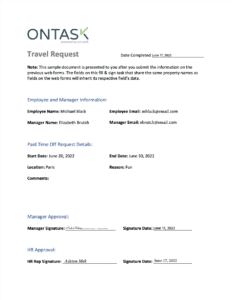You’re a business owner managing multiple projects, each with its contracts, regulations, and expiration dates. During an assignment, you realize a critical supplier agreement has expired and derailed your timeline.
Sound familiar?
For many businesses, contract tracking is a constant headache. Whether you’re a legal professional drowning in paperwork or an executive juggling countless agreements, the struggle is real. The problem? Inefficient contract management can lead to missed deadlines, compliance issues, and lost opportunities.
But there’s a solution. You can transform this administrative challenge into a strategic advantage by simplifying your contract tracking process. With the right approach and tools, like a powerful digital contract management platform, you can streamline operations, reduce risks, and unlock valuable insights.
Ready to take control of your contracts? Let’s explore how to simplify contract tracking and boost your business efficiency.
What is Contract Tracking?
Contract tracking consists of monitoring and managing agreements throughout their entire lifecycle — from inception to expiration.
This process involves several key steps:
- Creation and negotiation of contracts
- Approval and signing
- Storage and organization of documents
- Monitoring of key dates and milestones
- Tracking of obligations and deliverables
- Performance evaluation
- Renewal or termination decisions
Effective tracking follows contract management best practices to ensure organizations maintain compliance, reduce risks, and maximize the value of their agreements. It ensures that all parties fulfill their contractual obligations and allows for timely interventions when issues arise.
For example, construction and engineering firms need contract tracking to manage complex projects with multiple subcontractors and suppliers.
This enables them to:
- Monitor project timelines and milestones
- Ensure compliance with safety regulations
- Track material deliveries and quality control
- Manage change orders and scope modifications
- Coordinate payments and invoicing
Each agreement with subcontractors and suppliers has its own set of terms, deadlines, and obligations. Without a solid tracking system, it’s easy to lose sight of critical details, potentially leading to costly mistakes or missed opportunities.
So, what does effective contract tracking entail?
Here’s an overview:
- Centralized storage: Keeping all contracts in one secure, easily accessible location.
- Milestone monitoring: Tracking key dates, deliverables, and payment schedules.
- Performance evaluation: Assessing how well each party meets their contractual obligations.
- Compliance checks: Ensuring all agreements adhere to relevant laws and regulations.
- Renewal management: Staying on top of expiration dates and renegotiation windows.
Contract tracking may look like this for a general contractor: You store all your agreements on a digital platform. Each morning, you receive automated alerts about upcoming deadlines or required actions.
When a subcontractor’s insurance is about to expire, you receive a notification well in advance. If a client misses a scheduled payment, the system flags it for your attention.
But why is this level of detail necessary? Consider the alternative. You could miss a critical permit renewal, delaying your entire project. Or you could overlook a clause in a supplier agreement, leading to unexpected costs that eat into your profit margin.
Effective contract tracking isn’t just about avoiding pitfalls; it’s also about seizing opportunities. By having a clear overview of all your agreements, you can identify areas for improvement, negotiate better terms, and build stronger relationships with your partners.
Benefits of Effective Contract Tracking
Developing a better contract tracking system isn’t just about ticking boxes — it presents significant advantages for your organization.
Let’s explore the key benefits:
Improved Compliance and Risk Management
Effective contract tracking helps safeguard against compliance issues. By maintaining a clear overview of all contractual obligations, you’re better equipped to meet deadlines, fulfill commitments, and adhere to regulatory requirements. This proactive approach significantly reduces the risk of legal disputes, penalties, and reputational damage.
Enhanced Efficiency and Cost Savings
Time is money, and effective contract tracking saves both. Automating routine tasks and providing instant access to critical information streamlines operations, thereby reducing administrative overhead. No more frantic searches for misplaced documents or last-minute scrambles to meet forgotten deadlines. This efficiency translates directly into cost savings, allowing your team to focus on high-value activities rather than mundane paperwork.
Better Decision-Making and Strategic Planning
Knowledge is power, especially in contract management. A well-implemented tracking system provides valuable insights into your contract pipeline. You can quickly identify patterns, assess vendor performance, and spot opportunities for negotiation or consolidation. This bird’s-eye view empowers you to make data-driven decisions, optimize your contract portfolio, and align your agreements with broader business objectives.
Whether you’re a legal professional overseeing numerous agreements or a business owner optimizing procurement processes, effective contract tracking can be a game-changer for your organization’s success and bottom line.
Seven Steps for Simplifying Your Contract Tracking System
Implementing an effective contract management strategy makes your contract tracking process easier. But how do you get here?
Follow these seven steps to simplify and optimize your system:
1. Centralize Your Contract Repository
Creating a central hub for all your contracts is the foundation of efficient tracking. This approach ensures easy access, improved organization, and enhanced security.
To achieve this, implement a cloud-based storage system that allows authorized personnel to access contracts from anywhere while maintaining robust security protocols. Organize contracts by type, department, or client for easy management.
For example, a property management firm could create a centralized digital repository categorizing contracts by property type (residential, commercial, industrial) and further subcategorizing by specific properties. This system allows property managers to quickly access and review lease agreements, maintenance contracts, and vendor agreements for each property.
2. Standardize Contract Templates and Processes
Consistency is key in contract tracking. Standardizing your templates and processes reduces errors, saves time, and improves overall efficiency.
Start by creating template libraries for common contract types and establishing consistent naming conventions. Then, develop standardized workflows for contract creation, approval, and management.
For example, a construction company could develop a set of standardized templates with pre-approved clauses for different project types (residential, commercial, government). This standardization ensures legal compliance and speeds up the contract creation process for project managers.
Learn more about contract management automation benefits.
3. Utilize Contract Management Software
Tapping into technology modernizes contract tracking. The right software can automate many process aspects, reducing manual work and potential errors.
Choose a contract management platform that aligns with your organization’s needs and integrates seamlessly with existing systems. Look for features like automated workflow management, e-signature capabilities, and contract analytics tools.
For example, a legal firm could implement contract management software that automates the contract review process, flags potential issues, and provides real-time status updates to clients. This will improve efficiency and enhance client satisfaction through increased transparency.
4. Implement Automated Reminders and Alerts
Staying on top of key dates and milestones is critical in contract management. Automation can ensure nothing falls through the cracks and will solve common contract review problems.
Set up a system that sends notifications for important dates, such as renewal deadlines, payment due dates, and milestones. This proactive approach prevents missed opportunities or accidental contract expirations.
For instance, an IT services company could set up automated alerts for software license renewals, ensuring it never misses a renewal date and maintains uninterrupted service for its clients.
5. Establish Clear Roles and Responsibilities
Defining who’s responsible for each stage of the contract lifecycle ensures accountability and efficiency.
Assign contract owners and stakeholders for every phase, from negotiation to management. Define clear approval processes and authority levels to streamline decision-making and avoid delays.
For example, a manufacturing company could designate specific roles for contract negotiation, legal review, financial approval, and ongoing management. This clarity ensures that the most appropriate team member handles each aspect of a supplier contract.
6. Leverage Data Analytics for Insights
Modern contract tracking isn’t just about organization—it’s about gaining actionable insights from your contract data.
Use contract analytics tools to track key performance indicators (KPIs) for your contracts. Generate regular reports on contract status, performance, and trends to inform strategic decisions.
For instance, a sales team could use contract analytics to identify which terms are most frequently negotiated or which contracts tend to have the highest renewal rates. This information can guide future contract strategies and sales approaches.
7. Ensure Compliance and Security
Ensuring compliance and security in contract management is non-negotiable.
Implement robust access controls and user permissions to protect sensitive contract data. Maintain a detailed audit trail of all contract activities so your system always meets industry standards and regulations.
For example, a healthcare provider could implement a contract tracking system with built-in HIPAA compliance features, ensuring all patient-related contracts are handled under strict privacy regulations.
By implementing these seven steps, organizations–whether small startups or multinational corporations–can streamline their contract-tracking processes. This results in faster turnaround times, fewer compliance violations, and increased cost savings.
Contract Tracking Tools and Solutions
Today’s contract tracking tools offer a range of features designed to streamline your contract management processes. These tools can significantly enhance efficiency, reduce errors, and provide valuable insights into your contract workflows.
Let’s explore the key features to look for and important considerations when implementing a contract tracking system.
Features to Look for in Contract Tracking Software
When evaluating contract tracking tools, consider the following essential features:
- Centralized repository: Look for a solution that offers a secure, cloud-based storage system for all your contracts.
- Automated workflows: Seek software that lets you create custom approval processes and automate routine tasks.
- Document generation: Choose a tool that generates contracts from templates, saving time and ensuring consistency.
- E-signature capabilities: Opt for a solution that integrates electronic signature functionality for faster contract execution.
- Reporting and analytics: Ensure the software provides comprehensive reporting features to gain insights into your contract portfolio.
- Integration capabilities: Select a tool that can integrate with your existing systems, such as CRM or ERP platforms.
- Mobile accessibility: Find a solution that gives you mobile access to your contracts, insights, and approvals, ensuring accessibility while on the go.
Considerations When Implementing a Contract Tracking System
Implementing a new contract tracking system requires careful planning and execution. Keep these key considerations in mind:
- Scalability: Ensure the solution can grow with your business and handle increasing contract volumes.
- User adoption: Choose a user-friendly interface to encourage adoption across your organization.
- Data migration: Plan for the transfer of existing contracts and data into the new system (and make sure it’s simple to do).
- Security and compliance: Verify that the solution meets your industry’s security standards and regulatory requirements.
- Customization options: Look for a system that can be tailored to fit your specific business processes and needs.
- Training and support: Consider the vendor’s training offerings and ongoing support to ensure smooth implementation and usage.
- Cost-effectiveness: Evaluate the total cost of ownership, including implementation, licensing, and maintenance fees.
The right contract tracking tool for your organization depends on your specific needs, industry, and scale of operations. So consider these features and implementation factors to select an easy-to-use yet robust contract tracking solution.
Simplify Contract Tracking with Docubee
Who says contract tracking has to be tedious? With Docubee, it doesn’t have to be. Our intelligent contract automation platform is designed to help you manage contracts efficiently and effectively. By centralizing your contract repository, standardizing templates, and leveraging automation, Docubee ensures you stay on top of every detail.
Docubee transforms contract management from a cumbersome chore into a powerful business asset with automated reminders, robust compliance measures, and data analytics.
So whether you’re a legal professional, contract manager, business owner, or executive, our platform optimizes procurement processes so your team can focus on what matters — taking care of business.
Ready to take control of your contracts? Discover how Docubee enhances efficiency, reduces risks, and improves decision-making. Explore our contract tracking solution today and see the difference intelligent automation can make for your organization.











